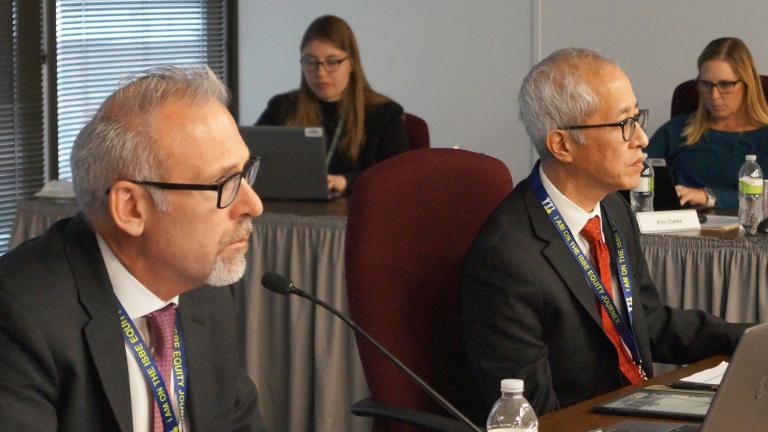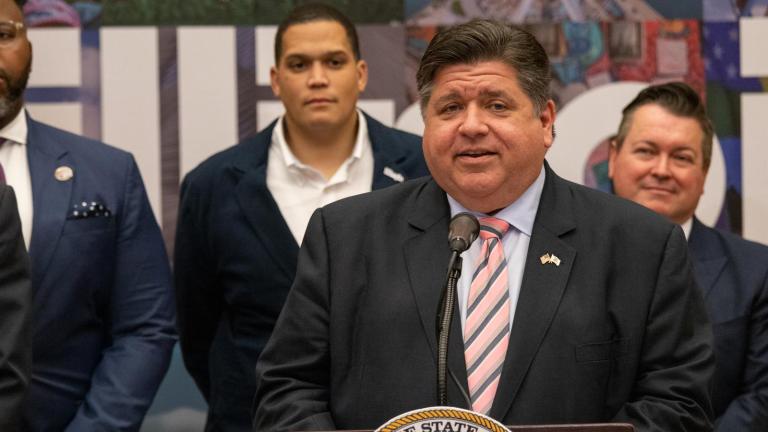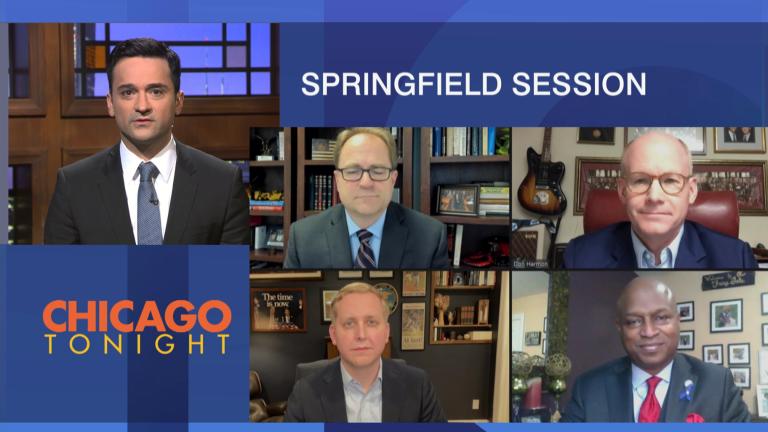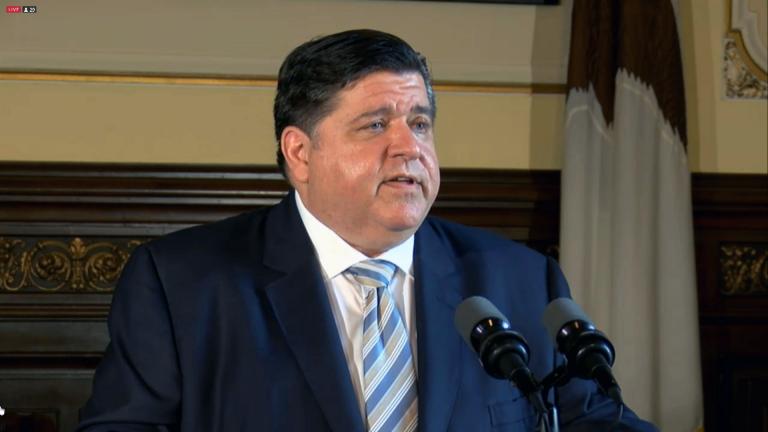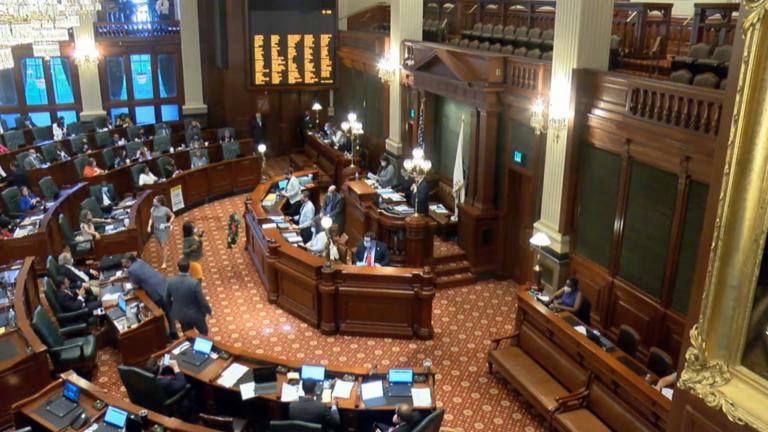
After two years of political deadlock, Illinois finally passed a budget last month. But the financial uncertainty caused by the impasse has caused “lasting damage” to the state’s social service infrastructure, according to a new report.
“The impact it had on people will likely last for far more than two years, and not just from the past two years but also going into the future,” said Mitch Lifson, one of the report’s co-authors and a senior policy analyst at Voices for Illinois Children.
During the prolonged impasse, many providers tapped into reserves, took out lines of credit or loans, and made cuts in order to provide services due to delayed payments from the state, which averaged eight months, Lifson said.
The reduction in services hit low-income women and their families the hardest, according to the report by Voices for Illinois Children, Chicago Foundation for Women and Loyola University Chicago’s Center for Urban Research and Learning.
![]()
 Read the report
Read the report
Damage Done: The Impact of the Illinois Budget Stalemate on Women and Children
“The reason we did this report is because … our experience is if you don’t invest in women and children, you don’t have strong communities,” said Alysia Tate, director of programs at Chicago Foundation for Women. “We have to invest in women and children to make sure we have communities that work for everybody.”
The report, titled “Damage Done: The Impact of the Illinois Budget Stalemate on Women and Children,” examines the effect the impasse had on breast and cervical cancer screenings, child care, domestic violence and homelessness, among other areas.
The report found 7,800 domestic violence victims were turned away from shelters in 2016; and 90 percent of homeless service providers were forced to reduce intake, services, staff programs or sites. In 2015, some 2,530 homeless youth were turned away from shelters (71 percent of those served by the Illinois Youth Services are young women and girls), according to the report.
“Women’s lives are complex and are touched by a range of services as they try to stay on the path to security. We wanted to show a range of ways that women are being affected,” said Tate. “We can’t talk about women’s and families’ well-being without dealing with child care.”
In July 2015, Gov. Bruce Rauner made changes to the eligibility for the Child Care Assistance Program (which assists low-income families in accessing affordable, high-quality child care), resulting in 30,000 fewer children receiving child care than in June 2015, according to the report.
Child care issues extend beyond just the mothers. For instance, if a woman is in a workforce training program and can’t find child care it affects everyone in that family, Tate said, adding the workforce training program itself depends on other programs to provide the supports women need, such as child care.
“Or say another woman is in an apprenticeship program and ends up in a domestic violence situation and can’t get counseling and has to drop out of the program,” she added. “It affects everybody. It has ripple effects across the network of human service agencies.”
One of the programs highlighted in the report is the Illinois Breast and Cervical Cancer Program, which provides free screenings and treatment for women who don’t have insurance.
More than 75,000 women (ages 40-64) are eligible for screenings. But during the impasse, reduced hours and services led to long waiting lists for the program, resulting in a 34-percent drop in the number of women receiving preventative screenings, according to the report.
Under the budget, many service providers will receive the same level of funding as they did in fiscal year 2015—before the impasse began, according to Lifson.
“There have been some cost increases for providers since the beginning of the impasse and fiscal year 2015,” he said. “By virtue of having level funding, that doesn’t appear to address that. ... When looking at the larger realm of human services, they may not be able to meet additional costs moving forward.”
Judith Gethner, executive director of Illinois Partners for Human Service, which works with more than 800 partners throughout the state, said the No. 1 question she hears from the providers is: “When are we going to get paid?”
The lack of certainty around funding has made it difficult for service providers to hire and retain staff. “It’s really sad because young folks don’t want to go into the field. It’s so unstable, the [pay] rates are so poor,” Gethner said, adding many will opt for jobs in industries like retail or fast food chains because the pay is roughly the same. “We’ve found it more difficult than ever in our sector to find and retain qualified staff to do our work.”
Both Tate and Gethner hope the report will serve as a call to action. “We hope this will motivate both our political leaders and residents across the state to insure that our state’s budgets and financial plan actually reflects what we value in the state,” Tate said.
“To be candid, a good percentage of our folks and individuals we serve aren’t in the capacity to fight for themselves. They’re just trying to live,” Gethner said. “We need everybody’s attention on what damage has been done so that we can make shifts in our policies and funding to be able to stop this from occurring. ...
“If we can get business leaders to be able to speak out loud about what this crisis has meant and how we do not want this to be the new normal in our state – business leaders can make a big difference in making sure this doesn’t happen to us again.”
Follow Kristen Thometz on Twitter: @kristenthometz
Related stories:
 State Budget Passes. Now What?
State Budget Passes. Now What?
July 10: The new state budget includes significant cuts and a higher income tax. So now what? We address some lingering questions about the fiscal health of the state—and the city.
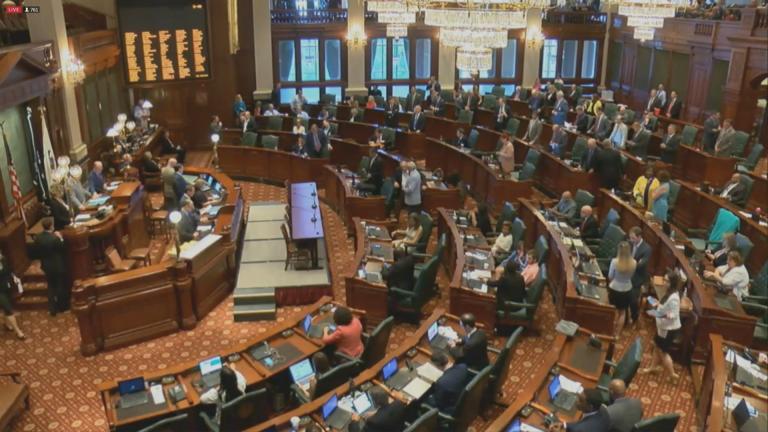 House Overrides Rauner’s Vetoes to Pass a Budget
House Overrides Rauner’s Vetoes to Pass a Budget
July 6: At long last, Illinois has a budget – its first in more than two years. And residents will be sending more of their paychecks to state government to help pay for it.
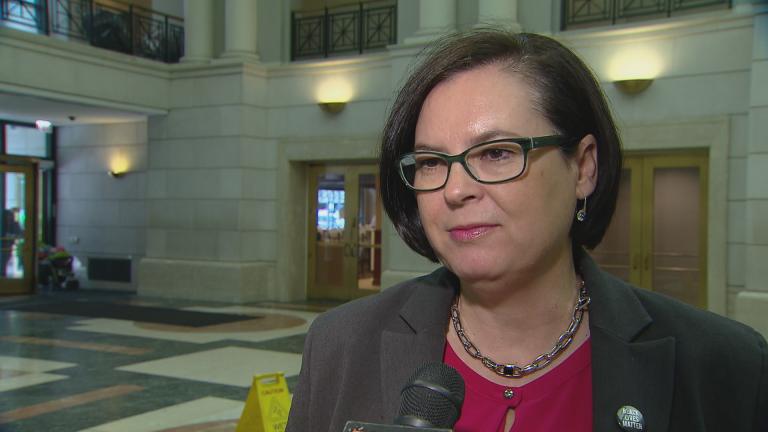 A Year Later, Illinois Service Providers Back in Court Seeking Money
A Year Later, Illinois Service Providers Back in Court Seeking Money
May 4: A year to the date that Illinois human service providers first went to court, the Pay Now coalition again asked the judicial branch to force the state to make good on its contracts.

